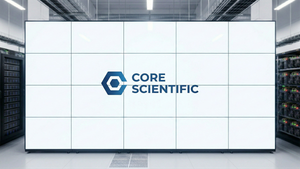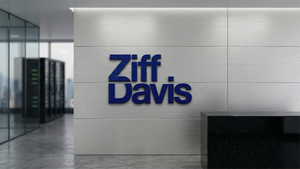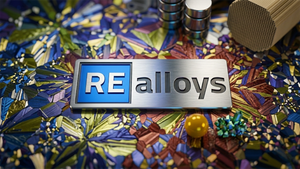Havoline PRO-RS to Join Chevron’s Trusted Havoline® Brand of Advanced Passenger Car Motor Oils as the Portfolio’s Ultra-Premium Product, Made with 25 percent Sustainably Sourced Plant-Based Oils
SOURCE: Chevron Corporation
DESCRIPTION:
SAN RAMON, Calif., December 22, 2021 /3BL Media/ — Chevron Products Company, a Chevron U.S.A. Inc. division, maker of the Havoline® brand of advanced passenger car motor oils, recently announced the launch of Havoline® PRO-RS™ Renewable Full Synthetic Motor Oil, its first renewable motor oil product and ultra-premium addition to the Havoline portfolio. Made with 25 percent sustainably sourced plant-based oils manufactured by Novvi LLC, Havoline® PRO-RSTM supports Chevron’s aim to advance a lower carbon future.
“As an industry leader in motor oil through our trusted Havoline brand, Chevron continues to make strides in developing game-changing, premium products that support the desire of our customers to reduce their lifecycle carbon intensity,” said Andy Walz, president of Americas Fuels and Lubricants for Chevron. “Havoline PRO-RS is Chevron’s first renewable motor oil, building on our partnership with Novvi.”
Havoline PRO-RS uses Chevron’s proprietary ECOSTRENGTH™ Technology, a process to develop high-performance synthetic lubricants using renewable plant-based feedstocks. Havoline PRO-RS has all the performance attributes of a premium, full synthetic motor oil, including cleaning power and wear protection. This product also enhances certain environmental performance attributes like emission control1 and lower carbon intensity2 compared to full synthetic motor oil. As such, Havoline PRO-RS is better for cars and the environment.
In addition, Havoline PRO-RS delivers superior fuel economy retention3, which can save on fuel costs and helps to maintain the oil’s fuel economy longer than other petroleum-based full synthetic motor oils that degrade over time. Havoline PRO-RS also provides excellent thermal protection4 to maintain the oils’ original viscosity to protect against oil breakdown.
Havoline previously launched two different motor oil package styles that use recyclable cardboard to reduce plastic waste. PitPack® is a 6-gallon package used in fast lube and mechanic shops, while Havoline Smart Change® is a 6-quart package found on the retail shelves and online at Walmart for those “do-it-yourselfers” who prefer to change their own oil. Havoline PRO-RS will be sold in both package styles.
“Our work with Chevron to develop and deploy our renewable base oils has generated enthusiasm from our customers who want to enhance the environmental performance of their products while meeting increasingly stringent engine specifications,” said Jeff Brown, CEO of Novvi. “Havoline PRO-RS is an exciting opportunity to showcase the environmental and performance advantages of our product line.”
Havoline PRO-RS will initially be available November 1 to professional installers in the United States and Canada, including owners and operators within Chevron’s network of Havoline xpress lube® and Chevron xpress lube® locations. Havoline PRO-RS will be available for purchase by U.S. consumers in the 6-quart Smart Change package on Walmart.com and at other retail locations in early 2022.
Havoline PRO-RS is a USDA Certified Biobased Product that exceeds the most demanding industry standards5 and is backed by Chevron’s Limited Product Warranty. For more information, visit havoline.com/renewable.
About Chevron Products Company
Chevron Products Company is a division of an indirect, wholly owned subsidiary of Chevron Corporation (NYSE: CVX) headquartered in San Ramon, CA. A full line of lubrication and coolant products are marketed through this organization. Select brands include Havoline®, Delo®, Techron®, Chevron xpress lube® and Havoline xpress lube®.
About Novvi LLC
Novvi LLC is the market leader in renewable oils and is a joint venture of Amyris, Inc. (Nasdaq: AMRS), American Refining Group, Inc., Chevron Products Company and H&R USA (H&R), a company of The Hansen & Rosenthal Group, of Hamburg (Germany). Novvi produces targeted hydrocarbon molecules from plant oils for automotive, marine, and industrial lubricants as well as a range of process oils and fluids. Novvi’s objectives are to design, manufacture, and market the best oils built to-date to meet the demands of the advanced machine world. Learn more at www.Novvi.com.
# # #
Contact
Tyler Kruzich, Chevron External Affairs
tkruzich@chevron.com
t. (925) 549-8686
William Downey, Novvi Senior Vice President of Business Development
downey@novvi.com
t. (917) 214-8063
CAUTIONARY STATEMENTS RELEVANT TO FORWARD-LOOKING INFORMATION FOR THE PURPOSE OF “SAFE HARBOR” PROVISIONS OF THE PRIVATE SECURITIES LITIGATION REFORM ACT OF 1995
This news release contains forward-looking statements relating to Chevron’s operations and energy transition plans that are based on management's current expectations, estimates and projections about the petroleum, chemicals and other energy-related industries. Words or phrases such as “anticipates,” “expects,” “intends,” “plans,” “targets,” “advances,” “commits,” “drives,” “aims,” “forecasts,” “projects,” “believes,” “approaches,” “seeks,” “schedules,” “estimates,” “positions,” “pursues,” “may,” “can,” “could,” “should,” “will,” “budgets,” “outlook,” “trends,” “guidance,” “focus,” “on track,” “goals,” “objectives,” “strategies,” “opportunities,” “poised,” “potential,” “ambitions,” “aspires” and similar expressions are intended to identify such forward-looking statements. These statements are not guarantees of future performance and are subject to certain risks, uncertainties and other factors, many of which are beyond the company’s control and are difficult to predict. Therefore, actual outcomes and results may differ materially from what is expressed or forecasted in such forward-looking statements. The reader should not place undue reliance on these forward-looking statements, which speak only as of the date of this news release. Unless legally required, Chevron undertakes no obligation to update publicly any forward-looking statements, whether as a result of new information, future events or otherwise.
Among the important factors that could cause actual results to differ materially from those in the forward-looking statements are: changing crude oil and natural gas prices and demand for the company’s products, and production curtailments due to market conditions; crude oil production quotas or other actions that might be imposed by the Organization of Petroleum Exporting Countries and other producing countries; technological advancements; changes to government policies in the countries in which the company operates; development of large carbon capture and offset markets; public health crises, such as pandemics (including coronavirus (COVID-19)) and epidemics, and any related government policies and actions; disruptions in the company’s global supply chain, including supply chain constraints; changing economic, regulatory and political environments in the various countries in which the company operates; general domestic and international economic and political conditions; changing refining, marketing and chemicals margins; the company’s ability to realize anticipated cost savings, expenditure reductions and efficiencies associated with enterprise transformation initiatives; actions of competitors or regulators; timing of exploration expenses; timing of crude oil liftings; the competitiveness of alternate-energy sources or product substitutes; the results of operations and financial condition of the company’s suppliers, vendors, partners and equity affiliates, particularly during the COVID-19 pandemic; the inability or failure of the company’s joint-venture partners to fund their share of operations and development activities; the potential failure to achieve expected net production from existing and future crude oil and natural gas development projects; potential delays in the development, construction or start-up of planned projects; the potential disruption or interruption of the company’s operations due to war, accidents, political events, civil unrest, severe weather, cyber threats, terrorist acts, or other natural or human causes beyond the company’s control; the potential liability for remedial actions or assessments under existing or future environmental regulations and litigation; significant operational, investment or product changes undertaken or required by existing or future environmental statutes and regulations, including international agreements and national or regional legislation and regulatory measures to limit or reduce greenhouse gas emissions; the potential liability resulting from pending or future litigation; the company’s future acquisitions or dispositions of assets or shares or the delay or failure of such transactions to close based on required closing conditions; the potential for gains and losses from asset dispositions or impairments; government mandated sales, divestitures, recapitalizations, taxes and tax audits, tariffs, sanctions, changes in fiscal terms or restrictions on scope of company operations; foreign currency movements compared with the U.S. dollar; material reductions in corporate liquidity and access to debt markets; the receipt of required Board authorizations to pay future dividends; the effects of changed accounting rules under generally accepted accounting principles promulgated by rule-setting bodies; the company’s ability to identify and mitigate the risks and hazards inherent in operating in the global energy industry; and the factors set forth under the heading “Risk Factors” on pages 18 through 23 of the company’s 2020 Annual Report on Form 10-K and in subsequent filings with the U.S. Securities and Exchange Commission. Other unpredictable or unknown factors not discussed in this news release could also have material adverse effects on forward-looking statements.
1Based on unsurpassed Sequence IIIHB result on PRO-RS SAE 0W-30 viscosity grade.
2Lower carbon intensity on a lifecycle basis compared to Havoline PRO-DS® SAE 0W-20 viscosity grade; lifecycle analysis based only on cradle-to-gate analysis and doesn’t include carbon intensity for end-of-life or any in-use aspects of the lifecycle analysis.
3Based on Modified Sequence VIF Fuel Economy Retention Test @ 340 hours using SAE 0W-16; compared against Havoline PRO-DS SAE 0W-16.
4Based on PVIS % (Percent Viscosity Increase) in the GM Oxidation & Deposits Test (GMOD) comparing Havoline PRO-RS 0W-20 and Havoline PRO-RS 5W-30 against Havoline PRO-DS 0W-20 and Havoline PRO-DS 5W-30.
5Havoline® PRO-RS Renewable Full Synthetic Motor Oil exceeds ILSAC GF-6 / API SP industry standards.
KEYWORDS: NYSE: CVX, Chevron, Havoline, Renewable Passenger Car Motor Oil





